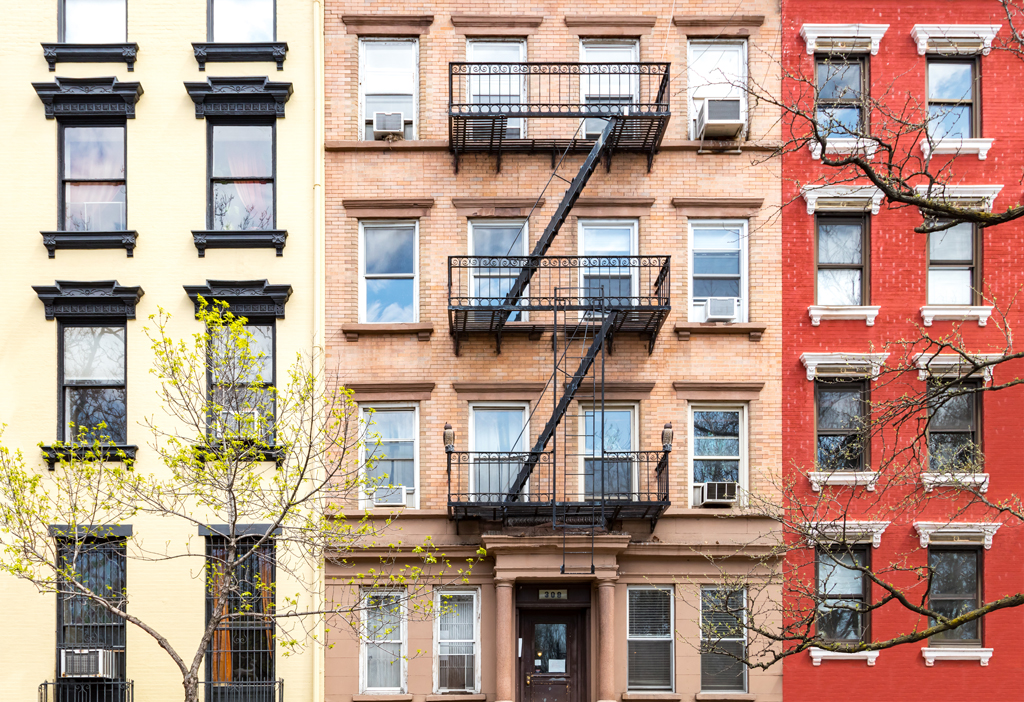
Real Estate Bulletin: How Regulatory and Land Use Changes Can Expand Housing in NYC

While every administration grapples with a shortage and crisis of affordable housing in the city, Mayor Adams faces acute housing challenges that have been compounded by rising population, job growth, and the pandemic. The Mayor has articulated a clear mission to “create, preserve, and maintain safe, affordable housing that will build a more equitable City.” Mayor Adams has assembled a formidable team to meet these challenges, led by Jessica Katz as the City’s Chief Housing Officer, and Adolfo Carrion as Commissioner of Housing Preservation and Development. Jessica Katz reiterated these priorities and noted the importance of expanding housing supply, ensuring families access to stable homes, and fixing NYCHA with “resident voices at the center of the conversation.” Regulatory and land use changes will be one of the keys to meeting these challenges, and this leadership together with newly appointed Dan Garodnick and the Department of City Planning can shape a land use and regulatory strategy to expand housing supply and guide the city’s future growth and development.
Background
The 2020 Census counted 8.8 million New Yorkers, an increase of over 629,000 since 2010, a number that is almost as large as the entire city of Boston. Housing development has lagged far behind this increase, driving up demand for existing and new housing, and contributing to homelessness, overcrowding, and pressures on existing residents. With a population expected grow beyond 9 million by 2030, hundreds of thousands of new housing units will be needed to meet current shortfalls and future demand. The Department of City Planning’s analysis showed the per capita housing production in the region and New York City lagged major U.S. metro areas over the past decade. New York City has been averaging about 20,000 new units per year, with only an additional 80,000 or so housing units in the pipeline.
Far more housing is needed.
Land Use and Regulatory Changes
There have been some who have called for development of a comprehensive plan for the entire city as a predicate for moving forward on new neighborhood plans and both private and publicly sponsored zoning changes. This approach would divert scarce resources and require years of process instead of taking concrete steps now to strengthen neighborhoods and build new housing. While improvements to the public review process must be made to ensure meaningful community engagement, consider equity issues, and balance growth with preservation, it is important that the Administration not be bogged down by process and instead focus on specific land use and regulatory actions to preserve existing housing and promote new housing opportunities and investment.
A few suggestions:
- Pursue an aggressive program of neighborhood planning that couples increased zoning densities for mixed-income and affordable housing with infrastructure investments and expanded access to services.
These plans can provide new housing opportunities across a range of incomes and promote jobs and economic investment. Plans should be targeted to both affluent neighborhoods where little if any affordable housing has been built, as well as to areas with obsolete zoning where land use changes can unlock private and public investments. The city should not turn its back on this approach, which has been successful across the five boroughs, from Long Island City in Queens, to SoHo/NoHo and Inwood in Manhattan, to Greenpoint Williamsburg in Brooklyn, to Jerome Avenue in the Bronx, and to Stapleton in Staten Island. Inclusionary housing would continue to be mandated in all new neighborhoods’ plans.
- As part of the neighborhood planning efforts, identify transit hubs where additional density can be accommodated, and rezone these areas and encourage private applications for zoning changes.
City Planning is already examining new opportunities around the planned Metro North Stations in the Bronx to take advantage of this major investment.
- Decrease the cost of new housing by eliminating unnecessary zoning requirements and streamlining the regulatory environment.
Parking requirements should be at the top of the list and targeted for further reduction or elimination. These requirements are one of the third rails of zoning, particularly in the lower density neighborhoods more distant from mass transit. Eliminating the parking requirement for accessory units, for example, would encourage, in conjunction with other regulatory changes, new accessory dwelling units across the city.
- Streamline the pre-certification process for ULURP.
The time and expense involved in completing pre-certification and beginning the formal public review discourages applicants from seeking zoning and land use changes. Put simply, the application and environmental review process for small and large projects takes far too long, due in part to redundant, unnecessary, and multiple reviews. Additional resources are most likely needed, but streamlining the pre-certification process should be a priority.
- Lift the 12 FAR cap imposed by both the Multiple Dwelling Law (MDL) and the Zoning Resolution.
While this proposal has faced considerable opposition in the past, the recent proposal from the Governor is to remove the 12 FAR limit in the Multiple Dwelling Law would allow New York City to modify the zoning to decide where more than 12 FAR of residential density would be allowed. Examples of where this could apply without zoning map changes would be Lower Manhattan, Midtown, Hudson Yards, and Downtown Brooklyn, which already have higher density commercial zoning districts greater than 12 FAR.
- Facilitate conversions of hotels to housing.
Proposals from the Governor would modify aspects of the multiple dwelling law together with affordable housing requirements to make it easier to convert hotels citywide, including those in manufacturing zones that are proximate to residential districts. The City should support this change while working with the state on the details.
- Promote new and mixed-income housing by making it easier to convert office buildings to residential use.
The Zoning Resolution provides flexibility to convert older office buildings to residential use with no FAR caps in parts of Manhattan, Queens and Downtown Brooklyn. Expanding this provision to post-1961 office buildings (post 1977 in Lower Manhattan) would allow owners to determine the best economic use of these buildings, particularly in light of the high office vacancy rates in parts of the City. Additional changes to the multiple dwelling law proposed by the Governor would also enhance conversions in conjunction with new affordable housing requirements.
- Retain but modify 421a Tax Incentives which are set to expire June 15th.
Some have called for the elimination of this provision entirely. The current incentives promote affordable rental housing in exchange for tax benefits, and there is considerable concern that absent this kind of incentive new rental housing in the city would be severely curtailed. The Governor has recognized this concern and proposed modifications to this law (under a new title — Affordable Neighborhoods for New Yorkers). The tax incentive would be retained but modified to provide deeper affordability, and a requirement that affordable units would be permanent.
- Expand the flexibility to transfers air rights from landmarked buildings to increase density on development sites while promoting landmark preservation.
Long discussed, wider transfers have only been implemented in limited instances such as the Theater Subdistrict and East Midtown. In most other cases, development sites must be adjacent to the landmark, and an extensive public review is needed to access these development rights. Allow wider transfers from individual landmarks and make the process easier by eliminating the need for ULURP.
Use of publicly owned land, NYCHA property, and obsolete manufacturing land should also be part of any comprehensive strategy for affordable housing and economic growth. While zoning and regulatory changes alone will not solve the housing crisis, they will be a necessary ingredient in achieving the housing goals of the new Administration.



